
“[Alejandro Mayorkas is] a traitor. He’s an absolute traitor. He lies under oath. He says that the border is secure. It’s not. He took an oath to protect us, and he’s not doing it…. The whole administration is the same way. Even our president, the president of the United States, I call him a traitor too.”
Texas rancher Wayne King made this statement to Fox News reporter Lawrence Jones when asked about the migrant surge at Eagle Pass, Texas.
Calling the president of the United States a traitor is a serious accusation, and not one that should be made without a preponderance of evidence pointing toward the president’s perfidy.
The situation on the border with Mexico is undeniably untenable. Texas, as a “sovereign body, independent of all others” (Federalist 39), retains the authority secure its borders, regardless of federal cooperation or contravention. The federal government is not granted authority over immigration in the U.S. Constitution, thus Texas’s power to patrol its borders is specifically safeguarded by the Tenth Amendment.
The Tenth Amendment reads:
The powers not delegated to the United States by the Constitution, nor prohibited by it to the States, are reserved to the States respectively, or to the people.
There is an argument to be made, however, that the age, gender, and national origin of many of the “migrants” breaching the border constitutes an invasion, thus requiring the federal government to repel it, per the terms of Article IV, Section 4, which reads:
The United States shall guarantee to every State in this Union a Republican Form of Government, and shall protect each of them against Invasion….
Whether it is immigration or invasion, the policy being pursued by Texas is lawful and rational, as is the frustration of farmers and ranchers, like that expressed by Wayne King.
Assuming, arguendo, that Texas (and several sister states) is being invaded and that the federal government has a constitutional obligation to repel the invaders, then King’s accusation against the White House would be accurate.
Before tagging Joe Biden with the taint of traitor, though, we should examine the definition of treason in Anglo-American law to determine if Biden could be culpable of such a serious offense.
Treason, in its truest sense, is the same in any society: It’s the act of trying to overthrow or seriously harm the public, which includes everyone joined together for mutual protection, regardless of the government’s form. Lesser crimes are sometimes also labeled as treason and punished similarly. Acts such as trying to kill a political leader, a military general, or a governor are clear examples of treason because they can lead to the downfall of governments.
Considering that in the English and American concept of “consent of the governed” as the only legitimate basis for government, then any political officeholder who misuses his power and trust, harming the nation and its people for personal gain, is also committing high treason, however.
Even if someone isn’t in a position of trust — say, a president’s son, for example — deliberately harming thousands and undermining the nation’s security or economy for personal gain is treasonous. These acts are inherently treasonous, regardless of what the law specifically names them, and countries have the right to treat those responsible as traitors.
There are as many types of treason as there are ways to conspire against a nation, and those responsible, no matter how powerful, deserve severe punishment.
The fundamental principle of self-preservation, essential for the survival of any political entity, demands such actions. The fate of millions and the existence of sovereign states and nations can’t be left to narrow, outdated legal interpretations. These are issues that should be judged by higher authorities, like the legislature, considering what’s fair and beneficial for everyone. Religious, moral, and practical considerations should guide these judgments, ensuring public peace and well-being. As John Trenchard explained in Cato’s Letter No. 12, published in 1721:
[Traitors] ought to know, that there is a power in being that can follow them through all the dark labyrinths and doubling meanders; a power that can crush them to pieces, though they change into all the shapes of Proteus, to avoid the fury of Hercules: a power, confined by no limitation, but that of public justice and the public good; a power, that does not follow precedents, but makes them; a power, which has this for its principle, that extraordinary crimes ought not to be tried by ordinary rules, and that unprecedented villanies ought to have unprecedented punishments.
In other words, traitors must realize that they can’t hide behind legal technicalities or manipulative tactics. A higher power exists that can pursue them through all their deceptions — a power not limited by traditional norms but guided by justice and the common good. This power doesn’t follow precedents; it sets them. Extraordinary crimes require extraordinary measures.
However, this power shouldn’t be lightly handed to lower authorities who might misuse it for personal reasons or under external influence. Such a critical responsibility could be misused, endangering those it’s meant to protect.
In England, historically, judges were appointed for certain reasons, and their decisions, especially regarding treason, were influenced by expectations of further advancement and protection. This necessitated restrictions on their authority in treason cases. In essence, any act to undermine the constitution and government was considered treason by England’s common law.
This concept isn’t unique to England; it’s a universal principle. Treason encompasses acts against the government established by the people, or the people’s rights, not just attempts on a monarch’s life. It’s illogical to consider attacking a political officeholder as the highest crime, but not acts against the people for whom the office exists.
Despite this being obvious, historical flattery and legal manipulation shifted the focus to protecting the prince’s absolute power. This led to a situation where opposing the monarch, who was supposed to safeguard the public, was seen as treason, while actual threats to the public were ignored. England’s history shows that treason was often a label used for opposing unlimited authority, while real treasons against the state went unpunished.
The 25th statute of Edward III — the inspiration for the treason clause in the U.S. Constitution — was a response to this, defining specific types of treason related to the king’s person and dignity. However, the statute also acknowledged other forms of treason, not specified, which should be evaluated by Parliament. This was to curb the misuse of the treason accusation by the king’s courts and to ensure fair judgment.
The most serious type of treasons, those against the legislature and the people, were reserved for Parliament’s judgment. These treasons were often committed by those close to power, making it impractical to leave their punishment to judges appointed by the same power. Such crimes are the responsibility of the legislature, backed by the people’s support. This power can bring even the most influential traitors to justice.
Part of the legislature’s duty was to hold those accountable who misuse the king’s favor, weakening his authority and endangering his person. This is what the people expected and demanded from their elected representatives. Historical texts and precedents show that parliaments exercised this right in various reigns, with opposition mainly coming from those facing punishment.
In the United States, one of the most encompassing restatements of the proper understanding of the law against treason was expressed in a letter written in 1808 from Rufus King, a delegate to the Constitutional Convention. King, citing English precedent, wrote:
The limitation which the Constitution establishes on the subject of Treason, proceeded from a principle, which will readily be approved by every man who is acquainted with the vindictive spirit that, at different times in the history of England, has animated the ascendant faction against their political adversaries. If the proposed law on the subject of Treason neither enlarges nor lessens its constitutional definition, the law is unnecessary; if it does the one or the other, it is unconstitutional. In the unfortunate periods, during which a country is torn by contending factions, the Treason laws should not be altered. Neither ought they to be changed just at the time when the Government is angry or disappointed in the failure to convict such as are believed to have committed Treason.
In the case of Joe Biden, the inquiry into the charge of treason being laid to him by Wayne King and others living along the border with Mexico should include asking the following relevant constitutional questions:
Is it treasonous for a sitting president to refuse to execute the lawfully promulgated acts of Congress?
Is it treasonous for the president of the United States to sit idly by while the southern border of the United States is arguably being invaded by a force of military-age men?
Finally, who possesses the political authority to decide the guilt of a president so accused?
That is a thorny political and moral question of uncertain outcome, but what is certain is that the current spirit shown by the legislature in punishing those who undermine public trust and liberty is discouraging. A firm, fearless stance would restore hope to the people and fear to the guilty, much as in the biblical story of Cain, who feared retribution even when there was no law against his crime.




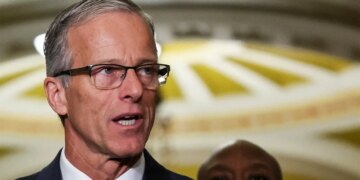
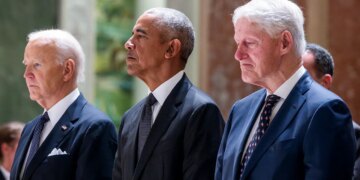
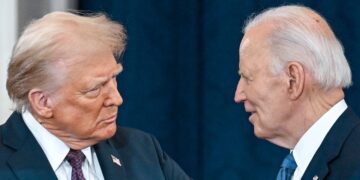


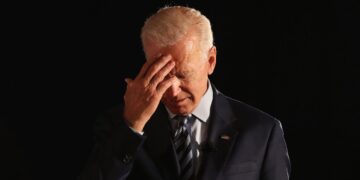
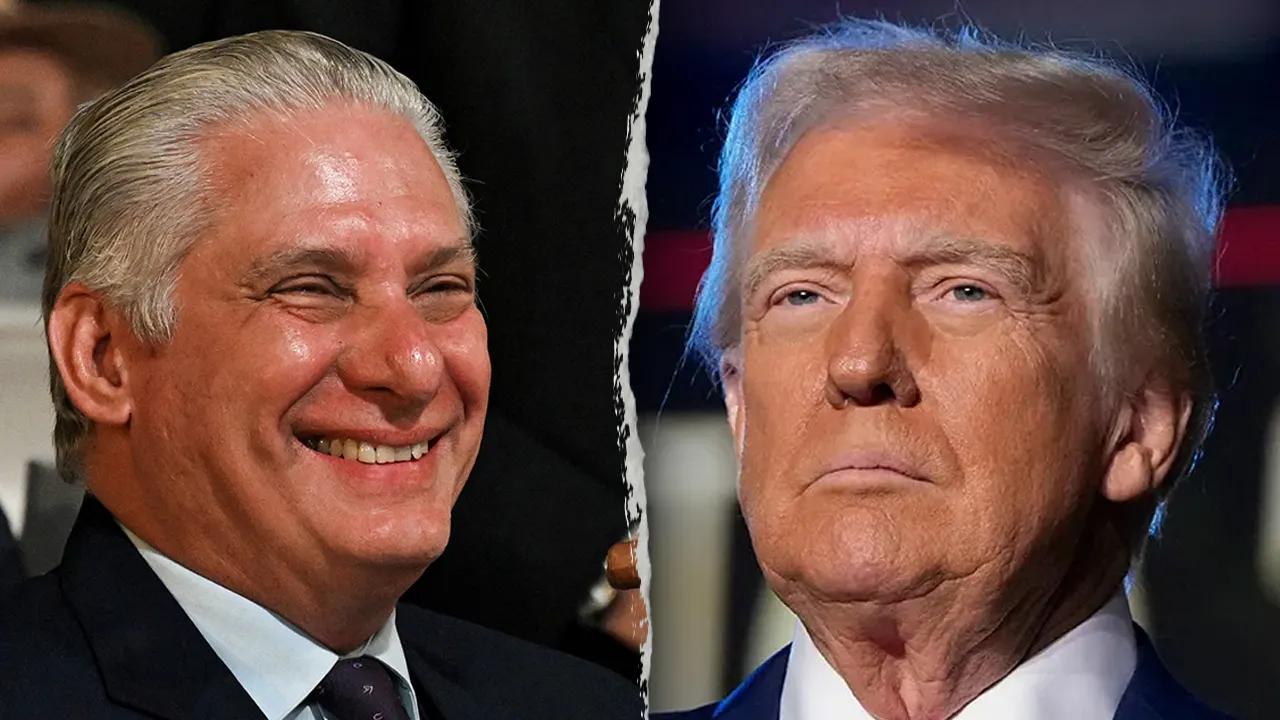






















 Reaction & Commentary
Reaction & Commentary



















